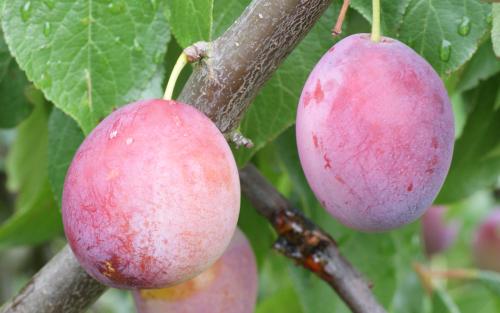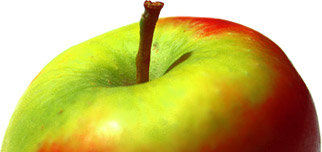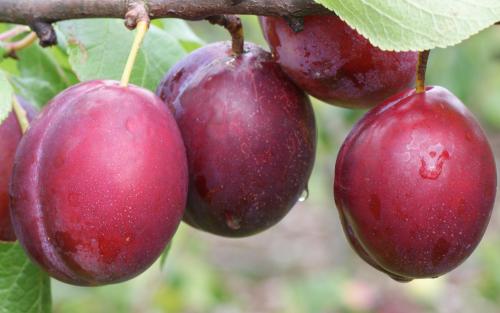
Seneca is a sweet-flavored red / purple European plum, notable for its particularly large fruit size.
Seneca is a useful choice if you are looking for a late-season dessert plum, it ripens in early September. The stone falls cleanly away from the flesh (freestone).
Seneca is a cross between Italian Prune and Prinlew. It was developed at the New York State Agricultural Experiment Station (NYAES), Geneva, USA in the 1940s and eventually released in 1972 - and is arguably the best European plum variety developed by NYAES.
Seneca plum identification images
All images copyright Orange Pippin unless otherwise stated.
USDA identification images for Seneca
The identification paintings in the USDA Pomological Watercolor Collection span the years 1886 to 1942.
Citation: U.S. Department of Agriculture Pomological Watercolor Collection. Rare and Special Collections, National Agricultural Library, Beltsville, MD 20705.
Visitor reviews
Tree register
United States
- Karen In Wa in Quilcene, WA
United Kingdom
- Jean Lippett in Martock, SOMERSET
- Steffan Ap Breian in Casnewydd, TORFAEN
Canada
- Roberto Moutal in Richmond, BC
- Sharlene Ketelaar in Mission, BC
Harvest records for this variety
2012 season
- September 2012 - tree owned by Roberto in Richmond, Canada
Origins
- Species: Prunus domestica - European plum
Identification
- Country of origin: United States
- Period of origin: 1950 - 1999
- Fruit colour: Red
- Flower colour: White
- Leaf colour: Green
- Popularity: Under-rated
- Annual cycle: Deciduous
Using
- Picking season: Late
- Keeping (of fruit): 1-3 days
- Flavour quality: Very good
- Flavour style (apples): Sweeter
- Cropping: Good
- Fruit persistence: Normal ripening
- Food uses: Eating fresh
- Picking period: mid-September
- Wildlife: RHS Plants for Pollinators
Growing
- Gardening skill: Average
- Flowering group: 3
- Pollinating others: Average
- Ploidy: Diploid
- Vigour: Vigorous
- Bearing regularity: Regular
- Self-fertility: Not self-fertile
Climate
- Climate suitability: Temperate climates
- Climate suitability: Warm climates
- Summer average maximum temperatures: Cool ( 20-24C / 68-75F)
- Summer average maximum temperatures: Warm (25-30C / 76-85F)
Other qualities
- Disease resistance: Average
- Brown rot: Some resistance
- Fruit splitting: Some susceptibility
Where to buy trees
The following tree nurseries offer Seneca plum trees for sale:
- Orange Pippin Fruit Trees (UK) United Kingdom
Seneca plum trees
Where to buy fresh fruit
No orchards have registered as growing this variety. If you grow this and want to register please go to our Orchard Registration form.


